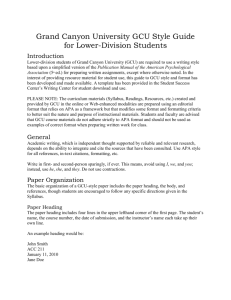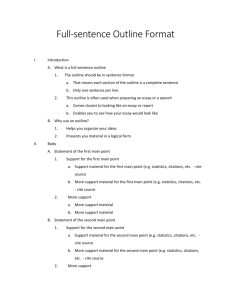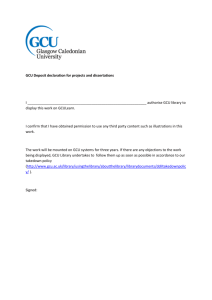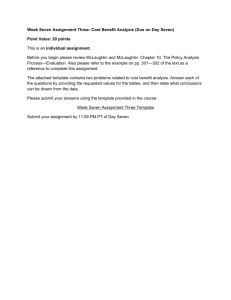GCU Paper Template: Formatting & Citations
advertisement
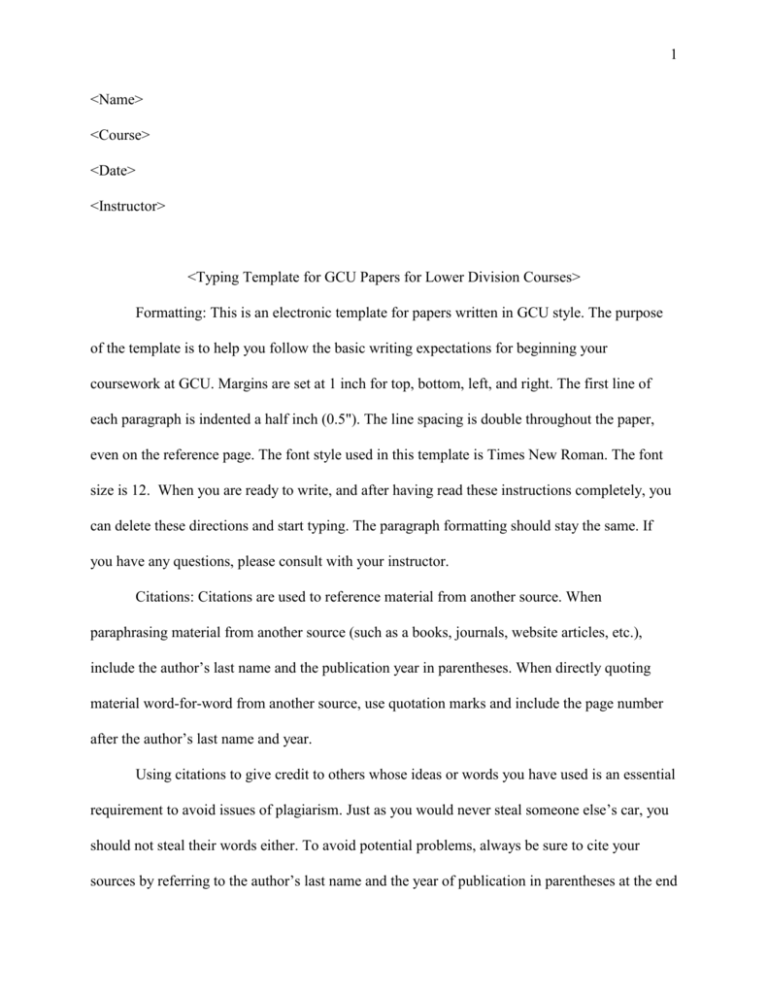
1 <Name> <Course> <Date> <Instructor> <Typing Template for GCU Papers for Lower Division Courses> Formatting: This is an electronic template for papers written in GCU style. The purpose of the template is to help you follow the basic writing expectations for beginning your coursework at GCU. Margins are set at 1 inch for top, bottom, left, and right. The first line of each paragraph is indented a half inch (0.5"). The line spacing is double throughout the paper, even on the reference page. The font style used in this template is Times New Roman. The font size is 12. When you are ready to write, and after having read these instructions completely, you can delete these directions and start typing. The paragraph formatting should stay the same. If you have any questions, please consult with your instructor. Citations: Citations are used to reference material from another source. When paraphrasing material from another source (such as a books, journals, website articles, etc.), include the author’s last name and the publication year in parentheses. When directly quoting material word-for-word from another source, use quotation marks and include the page number after the author’s last name and year. Using citations to give credit to others whose ideas or words you have used is an essential requirement to avoid issues of plagiarism. Just as you would never steal someone else’s car, you should not steal their words either. To avoid potential problems, always be sure to cite your sources by referring to the author’s last name and the year of publication in parentheses at the end 2 of the sentence, such as (Daresh, 2004) and page numbers if you are using word-for-word materials, such as “There are no simple strategies for accomplishing successful transitions, but we do know a great deal about how to get off to a good start” (King & Blumer, 2000, p. 356). The reference list should appear at the end of a paper (see the next page). It provides the information necessary for a reader to locate and retrieve any source you cite in the body of the paper. Each source you cite in the paper must appear in your reference list; likewise, each entry in the reference list must be cited in your text. Reference notes are formatted using a hanging indent of a half inch (0.5"). A sample reference page is included below; this page includes examples of how to format different reference types—books (Black & English, 1986), journal articles (Arnold & Dodge, 1994), and website articles ("Seventeen Moments," n.d.). 3 References Arnold, J. B., & Dodge, H. W. (1994). Room for all. The American School Board Journal, 181(10), 22-26. Black, J. A., & English, F. W. (1986). What they don’t tell you in schools of education about school administration. Lancaster, PA: Technomic. Daresh, J. C. (2004). Beginning the assistant principalship: A practical guide for new school administrators. Thousand Oaks, CA: Corwin. King, M., & Blumer, I. (2000). A good start. Phi Delta Kappan, 81(5), 356-360. Seventeen moments in Soviet history. (n.d.). Retrieved from http://soviethistory.org/index.php? action=L2&SubjectID=1929collectivization&Year=1929

